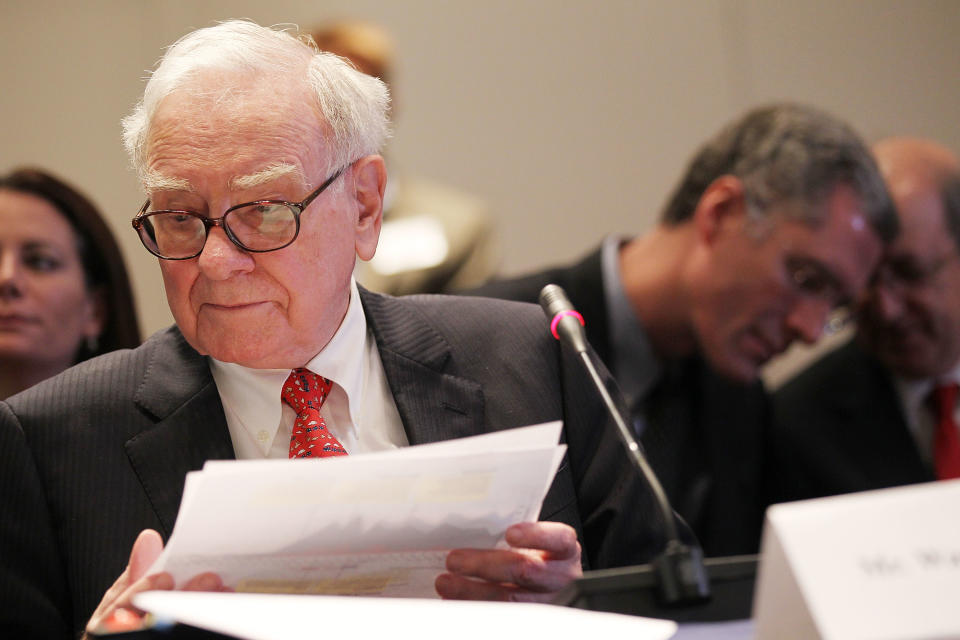Buffett's Berkshire Hathaway was responsible for 1.5% of the taxes paid by corporate America in 2019
Warren Buffett wants to let you know that Berkshire Hathaway (BRK-A, BRK-B) is paying taxes.
“In 2019, Berkshire sent $3.6 billion to the U.S. Treasury to pay its current income tax,” Buffett said in his annual letter to shareholders. “The U.S. government collected $243 billion from corporate income tax payments during the same period. From these statistics, you can take pride that your company delivered 11?2% of the federal income taxes paid by all of corporate America.”
Berkshire Hathaway is massive. The $560 billion company had operating earnings of $24 billion in 2019. Including all of its operating companies, Berkshire employs nearly 400 thousand people.
Buffett’s announcement comes as other mega corporations like Amazon (AMZN) are being skewered by politicians and activists for paying $0 taxes.
All that said, Buffett has made no secret of the fact that Berkshire is benefitting from corporate tax cuts put into place by the Trump administration. (See here and here.)
“After-tax earnings of our business operations in 2019 and 2018 were favorably affected by lower U.S. income tax expense compared to 2017, primarily attributable to a reduction in the statutory U.S. corporate income tax rate from 35% to 21%,” the company said in its annual report. “The effect of the lower U.S. statutory income tax rate on the comparative after-tax earnings of our various business operations varied, reflecting the differences in the mix of earnings subject to income tax, income tax credits and the effects of state and local income taxes.“

Berkshire’s insurance underwriting businesses paid an effective tax rate of 24.2% in 2019, down from 32.0% in 2017. Its railroad operations paid a 24.4% rate, down from 37.4%. Berkshire’s manufacturing, services and retailing arm paid a 23.7% rate, down from 32.8%. On its investments and derivatives portfolio, Berkshire paid a 20.9% rate, down from 34.9%.
In fiscal 2018, the IRS collected $262.7 billion in business income taxes, down from $338.5 billion in 2017.
For Buffett, those tax collections should increase as business grows.
“Fifty-five years ago, when Berkshire entered its current incarnation, the company paid nothing in federal income tax. (For good reason, too: Over the previous decade, the struggling business had recorded a net loss.),” Buffett wrote in his annual letter. “Since then, as Berkshire retained nearly all of its earnings, the beneficiaries of that policy became not only the company’s shareholders but also the federal government. In most future years, we both hope and expect to send far larger sums to the Treasury.”
—
Sam Ro is managing editor at Yahoo Finance. Follow him on Twitter: @SamRo
Read more:
Warren Buffett explains why he thinks going to college isn't for everybody
Warren Buffett's definition of 'true success' has nothing to do with money
Warren Buffett identifies the 'best way' to address income inequality
Follow Yahoo Finance on Twitter, Facebook, Instagram, Flipboard, LinkedIn, and reddit.
Find live stock market quotes and the latest business and finance news
